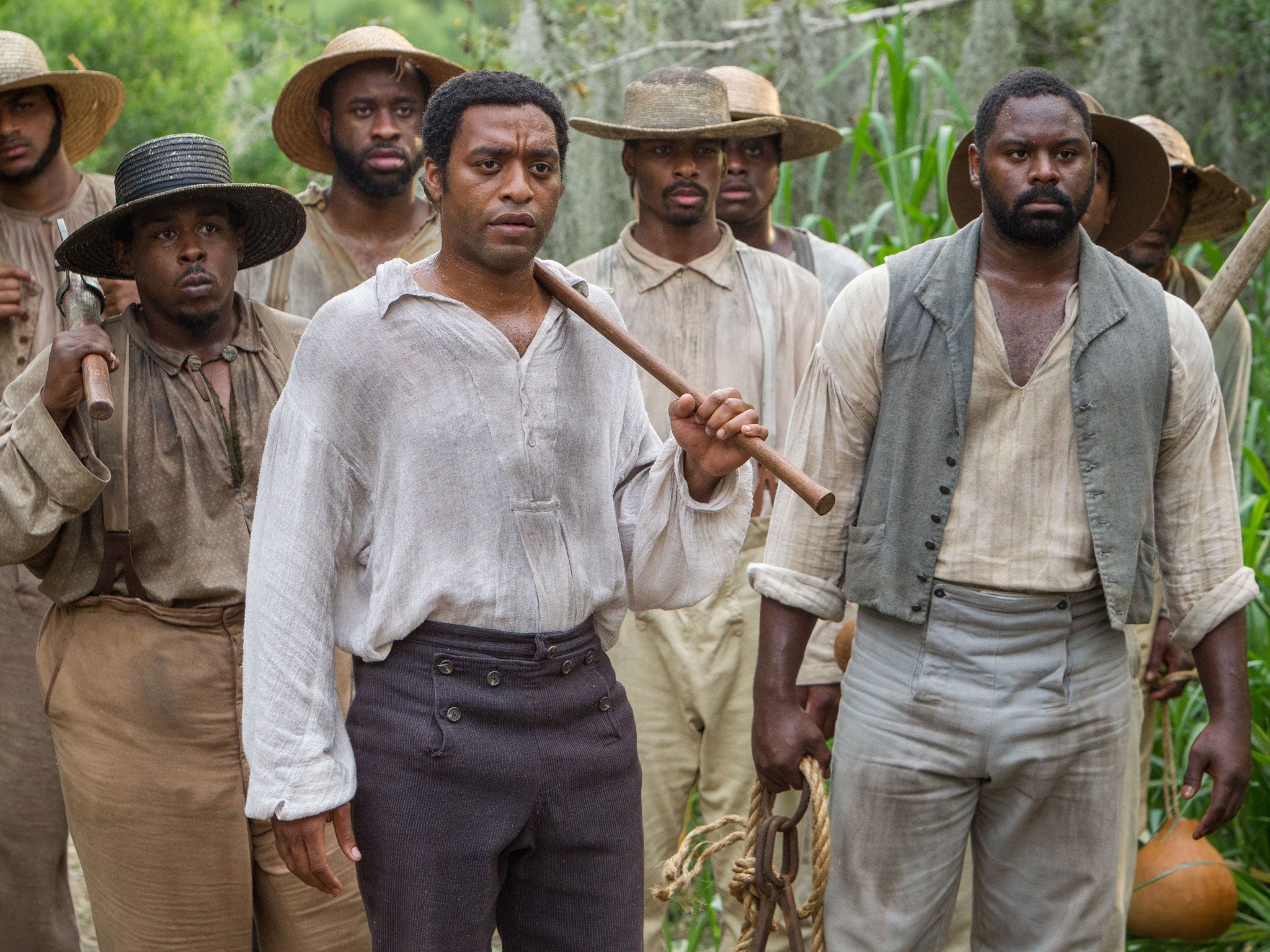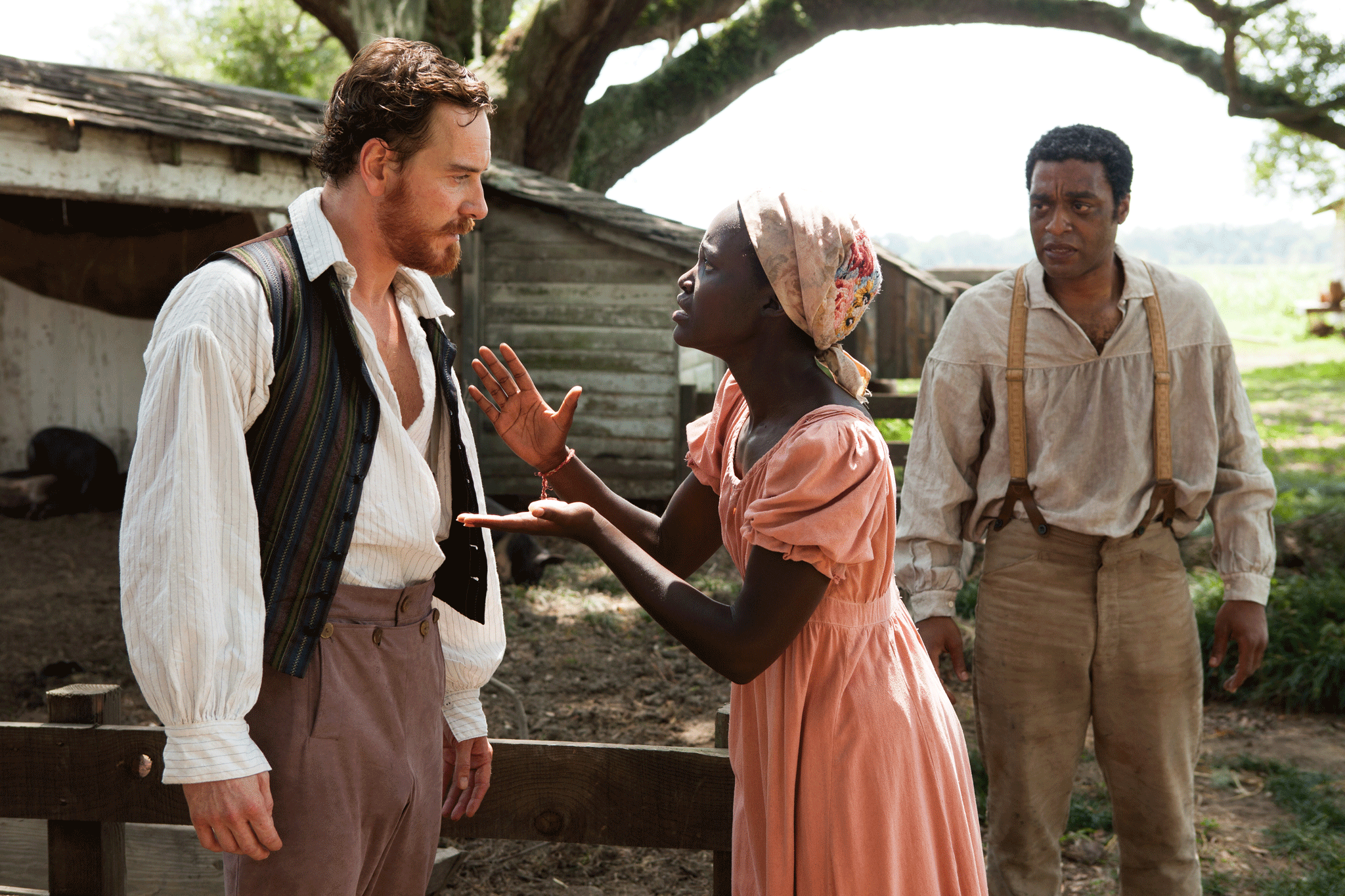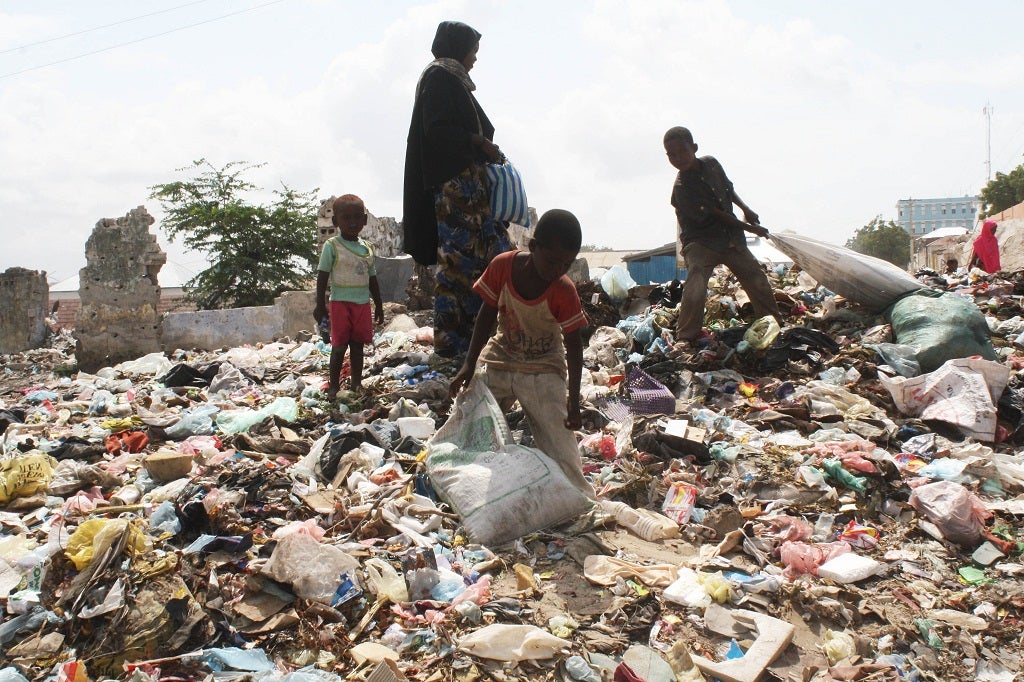The Independent's journalism is supported by our readers. When you purchase through links on our site, we may earn commission.
Different times, different victims: We're shocked at the legal structures that underpinned slavery, but what of the system that keeps millions poor today?
12 Years a Slave turns your mind to the present as well as the past

12 Years a Slave is an incredible film in many ways, and it thoroughly deserved to win two Baftas this week. It is beautiful, compelling, thought-provoking, and contains a number of fantastic performances. Some critics say it reflects a long-standing focus in Hollywood on making and taking notice of films depicting slavery and the struggle for civil rights, at the expense of other, alternative portrayals of black life. I sympathise with the spirit of this critique. Indeed, I have argued elsewhere that black history should be seen for all its diversity and that we should not simply focus on instances of injustice.
Nevertheless, this complaint misses the mark with respect to this film. For one thing, stories this good deserve to be told regardless of whether other vaguely similar stories have also been told. For another, when stories this good are told this well they can make points more clearly and powerfully than others, and they can deliver these messages to a wider, more receptive audience. 12 Years a Slave makes a number of important points very well. Here, I will report on just a few of them.
First, there’s something about watching a film in which black people are routinely abused (and abuse each other) with the word 'nigger' that makes me sceptical of the idea that the modern use of this word is a source of empowerment (Django Unchained had a similar, if less subtle, effect). I don’t deny that a previously abusive word can be reclaimed by the community that the word was originally intended to denigrate and harm.
Neither do I deny that the ability to police the use of language is an important source of social power. I am not at all sure, however, that economically and politically disenfranchised people (as African Americans still generally are) are meaningfully empowered by claiming the right to use and police the use of a word that was used to abuse their economically and politically disenfranchised forbears. Genuine empowerment would involve challenging the structures of economic and political power that foreseeably and avoidably disadvantage them, which, whatever else it does, co-opting and policing the use of the word 'nigger' does not. In fact, it often seems like a cruel sideshow.
The reference to economic structures leads to the second point: slavery was a practice supported, legitimised and sustained by the legal and economic structures and institutions of the time. Of course slavery was an economic regime designed to enrich white Europeans and Americans. But it was also underpinned by a legal regime designed to regulate behaviour, settle disputes and legitimise the system generally.

The significance of the legal order is emphasised at the end of the film when (SPOILER ALERT!!) Soloman Northup is rescued from slavery because his true legal status as free man is established. The other slaves remained in their bondage and misery, because the law regarded them as the property of the man with the documents to prove that he has purchased them legally. The message is this: slavery might have been powered by racism and greed, but it was also sustained and structured by law; and most men – even racist, greedy and sadistic men – tend to respect and obey the law.
All of this made me think the famous Nelson Mandela quote:
“Like Slavery and Apartheid, poverty is not natural. It is man-made and it can be overcome and eradicated by the actions of human beings.”
Extreme global poverty and inequality is possibly the greatest moral outrage of our day. Over 20 per cent of the world’s population live below the World Bank’s meagre $1.25 a day poverty line, and many live far below it. The lives of those who survive beyond childhood in this condition are horrendous: often stunted by malnutrition their daily focus is on mere survival. In a world of plenty such as ours, this state of affairs is a tragedy. Or at least it would be if it were created by a force of nature like the recent typhoon in the Philippines.
But poverty is not some freak accident. It is a state of affairs sustained and structured by an intricate web of national and international law. Think of the rich countries insistence on the inclusion of subsidies and tariffs in treaties which directly damage the interests of poor farmers in the ‘developing world’. Or think about legally enforced debt amassed by brutal, unrepresentative dictators which we require that the poor pay us back. Our current legal and political order is also one in which the richest 85 people in the world are as wealthy as half of the human race. Reflect on this statistic for a moment. Ask yourself: what on earth could justify this, especially while so many languish in inhuman and degrading poverty?

Some say that we have made great progress on poverty over the past few years, but this claim is less straightforward than it seems (read Thomas Pogge’s fantastic Politics as Usual for a robust challenge to the Millennium Development Goals success story). But even if we have made great strides in reducing poverty by some measure, the appropriate comparison isn’t with the unacceptable past but with the entirely feasible present and future. The status quo for blacks under Jim Crow was probably better than slavery, but this is certainly no endorsement of it.
In a sense it is strange that people (me included) have found 12 Years a Slave such a brutal and gruelling film to watch. It is almost as if we didn’t realise what the practice of trading in human beings might involve. Now consider what it must be like for the millions and millions of our fellow human beings who live in brutal and gruelling poverty. I imagine that many of you cannot; I certainly can’t. My guess is that people in the future will look back in amazement about how we allowed this state of affairs to continue. Who knows, someone might even make a film about it.

Join our commenting forum
Join thought-provoking conversations, follow other Independent readers and see their replies